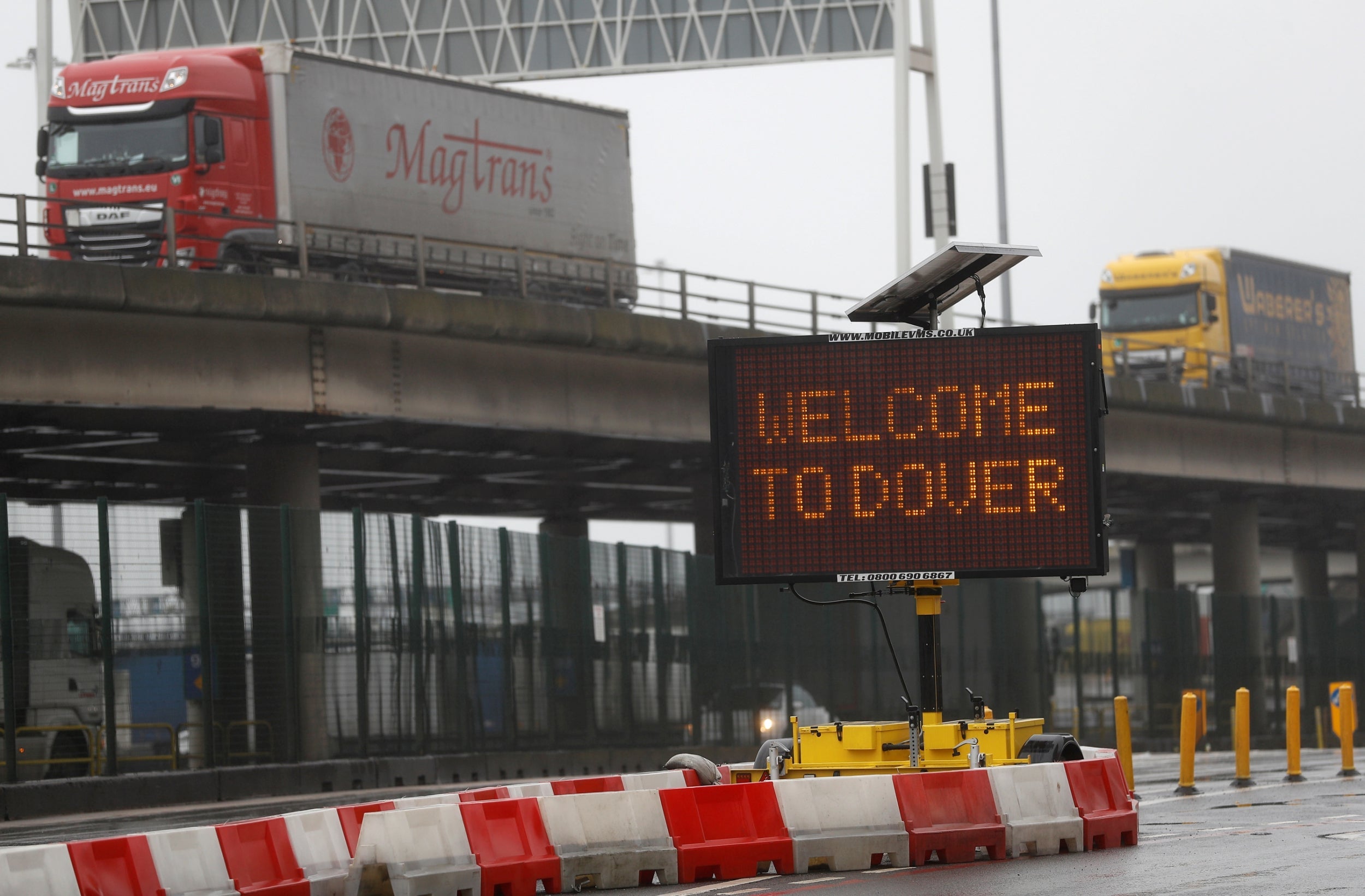Why taking back control of the UK’s borders will mean temporarily giving up control
A government U-turn means the post-Brexit sunlit uplands look even more elusive, writes Sean O'Grady


Now that the deadline to agree an extension to the Brexit transition has effectively passed, Britain is set to “take back control” on 1 January 2021.
However, in order to take back control of the UK’s borders, it seems that the British government will have to give up control over them, if only temporarily. Circumstances have forced ministers to abandon Michael Gove’s plan to collect appropriate taxes from border posts and customs checks. The Covid crisis made this extremely undesirable, given that so much food and medicine cross the English Channel. The emergency measures (especially in a second wave of the pandemic) would risk further chaos and loss of life.
It is also true, however, that even if the novel coronavirus had never emerged, the British would not have recruited the 50,000 additional HMRC and Border Force staff required to make Brexit effective. The previous hard Brexit stockpiles have been exhausted, and planning, for the third time, for a possible no-deal Brexit at the end of the year seems to be something business, particularly the haulage trade, views with even greater horror.
This U-turn, embarrassing as it is, does have the political merit of saving Boris Johnson from having to execute an even more screechingly painful one: asking the EU for more time, which they were keen to grant. He was not even prepared to have EU make the request and for Downing Street to graciously acquiesce. It was a promise that had to be kept; it was, foolishly, enshrined in law, and it was on the cooking instructions of the Johnson “oven-ready” Brexit deal.
Thus, a little bit of face saving has been achieved, and traders, businesses relying on European componentry, the supermarkets, pharma firms and householders alike will be relieved that the juggernauts will be waved through at Dover.
The obvious flaw in the plan is that the channel ports will be a one-way system. A free movement of goods from the EU to the UK (including across the Irish Sea), will not necessarily be matched by a reciprocal movement. Brussels – the European Council, Commission and Parliament – is responsible for setting the policy on post-Brexit trade, provided it conforms to WTO rules. Paris and the mayors of Calais and other ports are responsible for the practical administration of the regulations. Between them they can make life as easy for British hauliers and exporters as it is today; or they can make it hellish. Those with long memories will recall how, in the 1980s, the French designated a single tiny customs shed to process the many thousands of Japanese video recorders being imported, a nakedly protectionist scam.
No one is suggesting anything quite like that may happen again, but there remains the possibility that, in the midst of a pandemic, Kent will be transformed into a giant lorry park and British (and Irish) exports will be badly disrupted, with all the knock-on effects that implies for jobs and bankruptcies. For the EU, and particularly Germany, protecting the integrity of the single market is crucial and so far non-negotiable.
No wonder then that both sides have agreed to “accelerate” the UK-EU free trade talks. The respective chief negotiators, David Frost and Michel Barnier, have frankly admitted that the four rounds of talks thus far have made little progress. Mr Barnier adds that even the existing UK-EU Withdrawal Agreement – an international treaty with legal force – is unravelling, especially on the Northern Ireland question and EU citizen rights. Differences in the trade talks cover fisheries, the “level playing field” for rules and standards, dispute arbitration, and the role of the Court of Justice of the European Union. To all intents and purposes, the talks have failed.
Instead, the prime minister is to launch a new approach for the accelerated discussions. On Monday, he will have a video conference with the three EU presidents – Ursula von der Leyen (commission), David Sassoli (parliament) and Charles Michel (council). The aim is for an intense period of weekly talks to run through July. This will comprise formal sessions as now, and informal smaller group meetings in London and Brussels (socially distanced). One early item on the agenda will be a request from the UK for the EU to reciprocate the UK’s U-turn on border inspection posts with a “light touch” regime in the French and Benelux ports.
However, their customs offices are, another irony, rather better prepared than the UK’s and the EU would have to make an unprecedented concession on access to its single market to achieve that. Even if it did, it would only settle movements of goods; it would also beg the question about mutual access to service business, and free movement of workers (including lorry drivers) – and for how long. These “accelerate” talks could quickly morph into arguing about what would in reality be an extended transition period. Some might think that politicians and officials in all 27 + 1 nations have better things to do right now.
Join our commenting forum
Join thought-provoking conversations, follow other Independent readers and see their replies
Comments